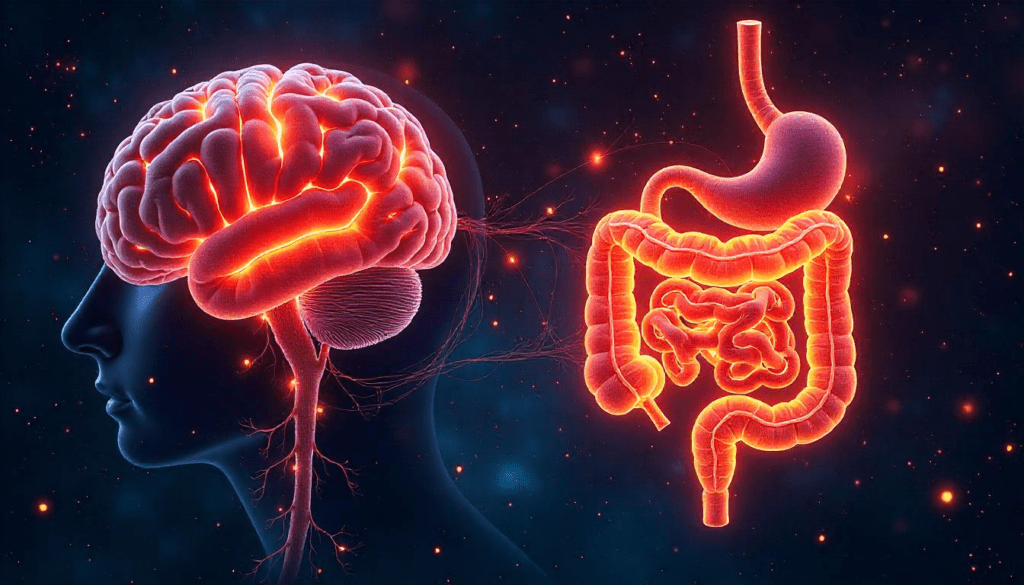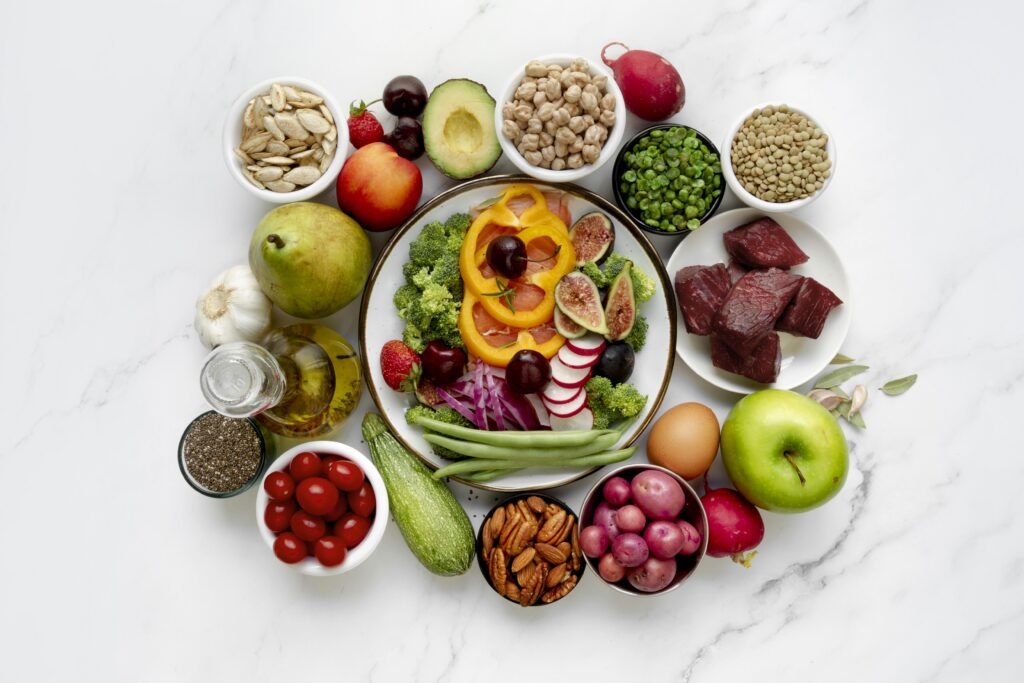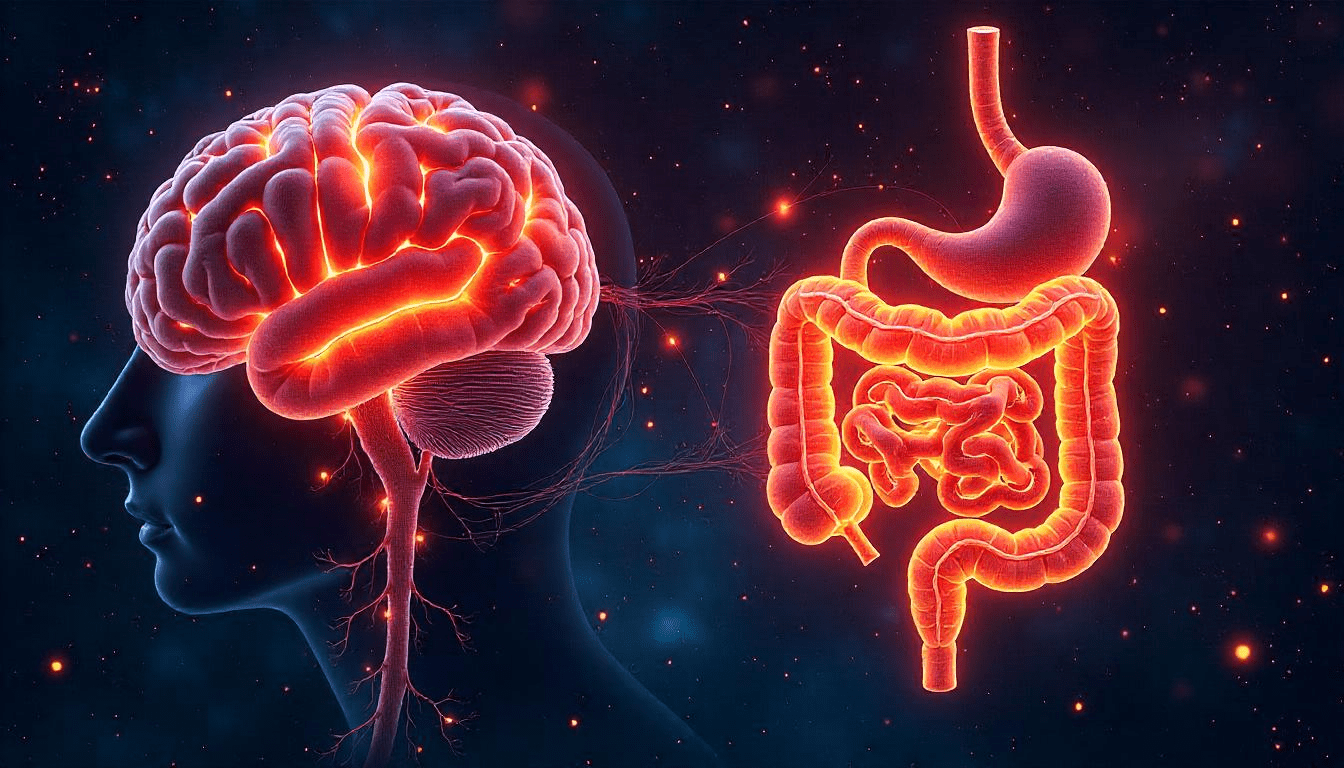Have you ever had a ‘gut feeling’ about something? Or experienced butterflies in your stomach before an important event? These are not just figures of speech—they reflect the real, powerful link between your gut and your brain. In recent years, science has uncovered the fascinating truth: your digestive system does far more than process food. It plays a major role in your mental and emotional well-being. The gut brain connection shows us one simple truth—when your gut feels good, your mind usually follows.
For people in India, where food, wellness, and emotions are deeply intertwined, understanding the gut-brain connection can unlock new paths to both physical and mental health. Let us explore how your digestion directly affects your mood and stress levels, and how you can take simple, natural steps to balance this vital connection.
Table of Contents

What is the Gut-Brain Connection?
The gut-brain connection refers to the constant, two-way communication between your gastrointestinal system (gut) and your brain. The gut brain connection isn’t just science—it’s the reason your digestion can lift or lower your mood without you even realizing it .This happens through a complex network known as the gut-brain axis, involving:
The Vagus Nerve: The longest cranial nerve in the body, it connects the brainstem to the abdomen and carries signals both ways.
Neurotransmitters: These are chemicals like serotonin and dopamine that affect mood. Surprisingly, about 90% of serotonin is produced in the gut.
Gut Microbiome: This is the community of trillions of microbes (mostly bacteria) living in your intestines. They influence everything from digestion to immune function to emotional health.
Your gut is even referred to as the “second brain”, because it has its own complex nervous system (the enteric nervous system), containing over 500 million neurons.
How Digestion Affects Mood
Mood and digestion are deeply connected. Poor digestive health can lead to imbalances in neurotransmitters and trigger inflammatory responses, both of which can affect your mental state. Here are a few key ways how:
1. Serotonin Production
Serotonin is often called the “happy hormone,” and it is vital for feelings of well-being, good sleep, and stable mood. Most of it is produced in the gut. When your gut is healthy, serotonin levels tend to be balanced. But if your digestion is compromised, serotonin production can drop, potentially leading to anxiety or depression and interrupt the gut-brain connection very badly.
2. Inflammation
A disturbed gut can produce inflammation, which does not just stay in your stomach. Inflammatory chemicals can reach the brain and impact mood-regulating centers, making you feel anxious or low.
3. Blood Sugar Imbalance
Poor digestion can also result in spikes and crashes in blood sugar levels, which can lead to irritability, mood swings, and fatigue.
How Stress Affects Digestion
It is a two-way street: just as digestion affects your mood, stress affects your digestion. When you are stressed, your body goes into “fight or flight” mode, which can suppress digestive activity. This often results in:
Constipation or diarrhea
Bloating or gas
Indigestion or acidity
Increased food cravings
Chronic stress can also reduce the diversity of your gut microbiome, weakening your gut health and, by extension, your mental well-being.
Signs Your Gut is Affecting Your Mood
Constant fatigue or low energy
Irritability or mood swings
Brain fog or poor concentration
Cravings for sugar and processed foods
Digestive issues like bloating, constipation, or diarrhea
Trouble sleeping
If you are experiencing several of these, your gut may be influencing your emotional state more than you think.
The Indian Diet and Gut Health

India has a rich culinary tradition that, when followed wisely, can be very supportive of gut health. Here are some traditional Indian foods that are great for your gut and mind:
1. Curd
A natural probiotic, curd introduces beneficial bacteria into the gut and helps with digestion.
2. Buttermilk
A cooling drink that aids digestion and introduces healthy bacteria.
Idly, dosa, dhokla, and kanji are rich in live cultures that help balance gut bacteria.
4. Moong Dal
Easily digestible and rich in protein, it is gentle on the stomach and supports healthy digestion.
5. Fiber-Rich Vegetables
Bhindi (okra), lauki (bottle gourd), and spinach help promote bowel regularity and feed good gut bacteria.
Ayurveda and the Gut-Brain Connection

Ayurveda, India’s ancient system of medicine, has long emphasized the connection between digestion and mental health. According to Ayurveda:
Agni (digestive fire) must be strong for both physical and mental wellness.
Ama (toxins) form when digestion is weak, leading to both physical illness and emotional imbalances.
Herbs like triphala, ajwain, and ginger are used to enhance digestion and calm the mind.
Simple Ayurvedic tips for gut-brain balance:
Eat at regular times
Avoid overeating or eating late at night
Drink warm water throughout the day
Include spices like cumin, fennel, and turmeric in your meals
Modern Science Supports Traditional Wisdom
Modern research now supports what Ayurveda has taught for centuries. Studies have shown that:
Probiotics can reduce symptoms of depression and anxiety
A diverse gut microbiome is linked to better mood stability
Mindfulness practices can reduce gut inflammation
Diets rich in Fiber, vegetables, and fermented foods can improve mental clarity
Natural Ways to Improve Your Gut-Brain Health
1. Eat a Balanced, Whole-Food Diet
Focus on fruits, vegetables, whole grains, and legumes. These provide the fiber your gut needs to thrive.
2. Incorporate Probiotic and Prebiotic Foods
Probiotic foods (curd, pickles, kanji) introduce good bacteria. Prebiotic foods (bananas, garlic, onions) feed them.
3. Practice Yoga and Pranayama
Poses like Pawanmuktasana and breathing techniques like Anulom Vilom improve digestion and reduce stress.
4. Get Enough Sleep
A tired brain cannot manage stress or digestion well. Aim for 7–8 hours of quality sleep.
5. Limit Processed and Sugary Foods
These feed bad bacteria and create an imbalance in your gut.
Water helps with digestion and keeps your gut lining healthy.
7. Manage Stress Mindfully
Meditation, journaling, spending time in nature, or even simple deep breathing can calm your nervous system and support digestion.
Conclusion:
Your gut and your brain are best friends—what affects one will affect the other. In a fast-paced world filled with stress, poor diet, and mental fatigue, taking care of your digestion is one of the best things you can do for your emotional well-being.
By embracing simple, everyday habits rooted in both modern science and traditional Indian wisdom, you can strengthen the gut-brain connection and feel better in every sense.
So, listen to your gut—literally. It might just have the answers your mind is looking for.
FAQs
Q: Can gut problems really cause depression or anxiety? Yes. An unhealthy gut can lead to imbalances in serotonin and cause inflammation that affects brain function, leading to anxiety or low mood.
Q: What are the best Indian foods for gut health? Curd, buttermilk, fermented rice, moong dal, and high-fiber vegetables like Lauaki and spinach.
Q: How can I naturally improve my gut health? Eat more whole foods, include probiotics, reduce stress, sleep well, and avoid excess sugar and fried foods.
Q: Does Ayurveda recognize the gut-brain connection? Yes. Ayurveda has long emphasized strong digestion (Agni) as essential for physical and mental health.
Q: Can stress cause stomach issues? Absolutely. Stress slows digestion, leading to bloating, cramps, constipation, or even acidity.
Let your gut be your guide—towards better health, better moods, and a more balanced life.
